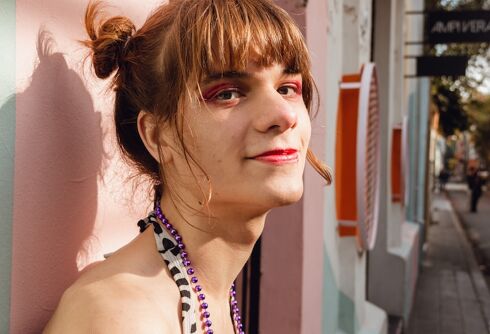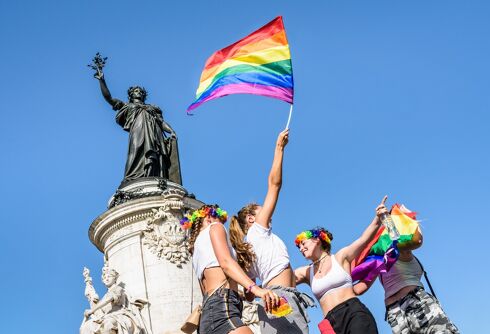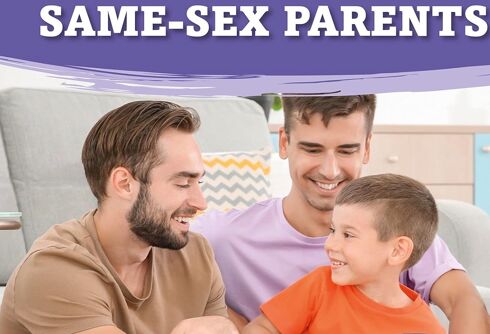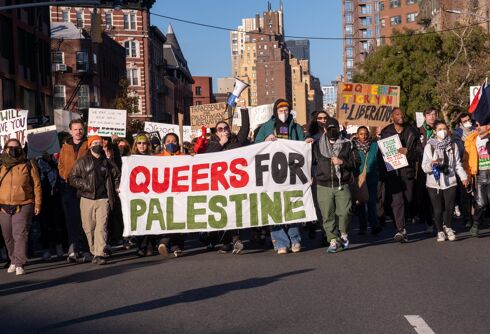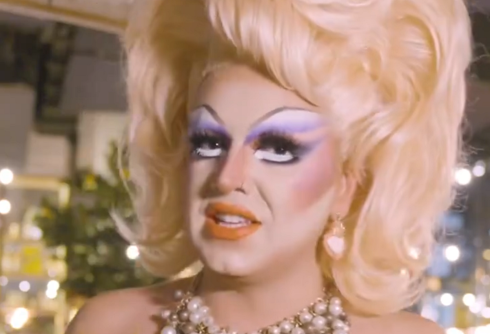DUBLIN (AP) — Coming out as a transgender boy brought untold relief to Irish student Lucas Cross. After years of holding it in, he could finally start using the boys’ restrooms at school — because Ireland, like some other parts of the world, doesn’t make a federal issue about where children do their business.
As Donald Trump and U.S. courts seek to make transgender use of toilets an American battleground in schools , the more progressive corners of Europe and Latin America are shaking their heads in bewilderment. From Tipperary to Tierra del Fuego, schools let children go to the bathroom that suits their identity, a trend that could be reversed if the bitter U.S. debate travels overseas.
“What happens in the U.S. has a cultural impact here, and it’s scary,” said Catherine Cross, Lucas’ mother, who helps Irish schools nationwide set policies on how to support transgender students. “There’s always going to be people who are frightened of change. It could give them license to shout louder when they see what’s going on in the States.”
The right of transgender students to use restrooms in keeping with their own identity has become an afterthought in Norway and Argentina, where the world’s most far-reaching laws allow children to have their sexual identity reversed on their birth certificates, passports and other official identification without any formal medical diagnosis. Acceptance of identity from age 6 onward is the order of the day.
Never Miss a Beat
Subscribe to our newsletter to stay ahead of the latest LGBTQ+ political news and insights.
“When someone changes gender, the corresponding bathroom is respected. If it’s a trans girl, she goes to the girl’s bathroom. If it’s a trans boy, he goes to the boy’s,” said Barbara Magarelli, a gay rights activist in Argentina, where she advocates supports for transgender children — including her own 12-year-old, whose official documents were changed three years ago to reflect her identity as a boy.
Magarelli said parents often have the bigger problem coming to grips with new realities. Her son’s prepubescent classmates, she said, “already knew.”
In Norway, 10-year-old Anna Thulin-Myge is feeling liberated by a 2016 law that allowed her to be officially redefined as a girl. That means she can use the girls’ toilets and the girls’ locker room for gym. The only special arrangement is that she arrives five minutes ahead of the other girls to change. The nation’s sports federation advises schools and leagues that transgender girls should be allowed to play on girls’ teams, arguing that inclusiveness trumps any concerns about competitive advantages.
“It makes me feel included,” Anna said at her family home in Haugesund, a small town on Norway’s southwest coast.
Anna has discussed Trump’s policy shift with her parents and hopes her school doesn’t ever force her back to the boys’ room. “I would feel sad and confused. That’s not me,” she said.
A deficit in firm rules governing how to deal with transgender children does present challenges in European countries, activists concede, but they say that has helped avoid a U.S.-style culture of conflict on the matter.
“Yes, there are pressure points because when people ask, ‘What shall we do?’ there is no general from-the-top guidance. Schools have to make it up some of the time, and they have to think on their feet,” said Jane Fae, a transgender activist in London. “But no, what you don’t have over here is the fanatically religious opposition to LGB people and to trans people.”
Both Ireland and Malta, overwhelmingly Catholic lands where abortion remains outlawed, passed laws in 2015 permitting changes to sexual identity on official documents — Malta for even young children, Ireland at age 18. Ireland that year also became the first country on earth to legalize gay marriage by popular national vote.
Crusading activists have paved the way on both islands.
In Malta, 8-year-old Willa Naylor helped persuade government ministers to change the law with a personal appeal fleshed out in her book, “Truly Willa.”
Ireland’s foremost transgender rights pioneer, Lydia Foy, spent decades following her 1992 sex-reassignment surgery fighting legal battles to have Ireland record her as a woman. In 2015 she became the first Irish citizen to make the official change.
Hundreds more have followed, including Lucas Cross, who today is a transgender freshman studying psychology in Waterford, southeast Ireland. Only a few years ago in his native village of Rathangan, Lucas was feeling suicidal, self-harming and refusing to drink water for fear it might force him to use a school toilet.
“I avoided it at all costs,” he said. “I’d go in the morning and not again until I got home.”
“Going into the girls’ was never comfortable for me, even though it’s cleaner and smells better,” he said. “I felt like I should be in the boys’ bathroom but it was extremely intimidating. I wasn’t ready for any transphobic remarks. It was easier to avoid the bathroom completely than to confront the question.”
His mother says it took years for her to come to grips with her child’s true identity — and, in the summer before Lucas’ senior year, warned teachers and the principal to be ready for change. Lucas’ final year of high school became by far his happiest as staff and classmates accepted him as a boy.
“The school were very good about it. They were only concerned that I wasn’t using either loo,” he said. “They made sure I knew that it was completely fine to use the bathroom I wanted and if there was an issue, they definitely had my back.”
Today, the son helps his mother guide schools, transgender children and their families toward happy compromises like his own. He facilitates monthly “Transformers” fellowships for people aged 14 to 19, while in another room, she counsels their parents and school officials.
New Department of Education-approved guidelines recommend adopting unisex school uniforms and sports activities, respectful and consistent use of the student’s new name, and appointment of a teacher trained in answering students’ questions about transsexual issues — in part so that the school’s lone trans student doesn’t face all that pressure alone to explain.
Catherine Cross says about 10 percent of schools she advises still seek to force transgender students to use disabled toilets, refuse to use their new name and stick to calling a transgender girl “he” and vice versa. Problems are most common, she says, in all-boys schools where a lone transgender girl might live teenage years of silent shame rather than risk being recognized.
Ireland’s approach to transgender students may be ahead of American practice, she says, but it’s subject to the whims of local principals.
“The guidelines are not law or mandatory. Irish schools have a lot of autonomy to do what they see fit,” she said. “On the whole they are pretty decent to trans kids. But they don’t have to be.”
This material may not be published, broadcast, rewritten, or redistributed.







